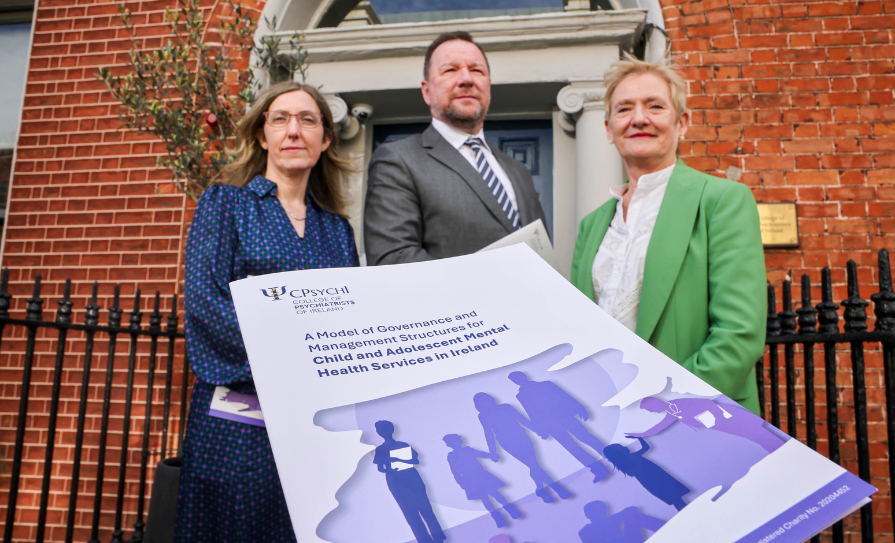The HSE has published the National Service Plan 2023 following approval by the Minister for Health Stephen Donnelly.
The National Service Plan (NSP2023) outlines the health and social care services to be provided to the people of Ireland this year. The Government has allocated a budget of €21.124 billion for this purpose, which is 5.7 per cent above last year’s starting budget.
The Financial Management Framework (pages 72-95 of the NSP document) contains information about significant financial issues and risks for NSP2023. These arise from a range of factors including uncertainty about the trajectory of Covid-19, international events such as the war in Ukraine, inflationary pressures, labour market forces and the changing demands on the health system. According to the HSE: “We will work closely with the Department of Health and the Department of Public Expenditure and Reform throughout 2023 to report transparently on the financial challenges and to problem-solve as challenges arise, under the oversight of our board.”
The NSP2023 includes an additional:
- €240.2m investment in new service developments
- €564.5m once off funding for Covid-19 costs
- €899.2m to fund increased costs of providing the existing level of service to cover non pay inflation and national pay awards.
Minister Donnelly said, “I am pleased to approve the HSE National Service Plan for 2023 which reflects the provision by this Government of the largest budget allocation to the HSE in the history of the State.
“This unprecedented level of investment further supports the resilience and preparedness of the health service to increase capacity and permanent staffing levels, to progress the implementation of national strategies and to advance the vision of universal healthcare based on the strategic reform set out in the Programme For Government and Sláintecare. This ongoing reform will ensure the provision of a public health service which provides people with access to high quality, affordable care when they need it.
“I look forward to ongoing collaborative engagement with the HSE board, CEO and executive in the implementation of the measures set out in the NSP, which include the ongoing rollout of community initiatives, continued focus on women’s health and the implementation of national strategies and key Sláintecare reforms.”
Speaking about the HSE’s priorities for 2023, Mr Ciarán Devane, HSE Chairperson said, “Supporting the delivery of universal healthcare and delivering the reforms outlined in Sláintecare remain the priorities for the HSE. Waiting lists for scheduled care in hospitals and long waits in emergency departments, particularly for older people and those who have more complex needs, remain a concern and a priority for the organisation. Our reform programme continues to seek to address this, as well as addressing waiting times for mental health and community-based services, with the ultimate aim of improving the patient/service user experience through innovative initiatives including the ongoing digitisation of our health service.”
Mr Bernard Gloster, CEO of the HSE said, “This €21.1 billion revenue budget is an enormous investment by the State. We will use it to continue to improve access both to community and acute hospital services and to reduce waiting times, waiting lists and emergency department congestion. We take our direction from the priorities set by the Minister for us which are several, but at the top of the agenda are access and urgent care improvements. Improving access and service for each individual who needs our support must be our sole motivation and a responsibility we take seriously each day.
“During 2023, we will also commence implementation work in preparation for the establishment in 2024, in line with Sláintecare, of the six Regional Health Areas.”
The HSE has listed the key priorities for 2023 as follows:
Hospitals: Additional general acute beds will come on stream in 2023, bringing the total increase since 2020 to 1,179 by the end of 2023 along with additional critical care beds, leading to a total of 352 by the end of this year. “These figures can fluctuate for operational and service reasons,” stated the HSE. “We will continue to deliver safe, timely access to hospital care by implementing a range of measures to ensure better access to unscheduled care, improved cancer care and prevention, and to build on proven waiting list initiatives and ambitious waiting time targets have been set for outpatients.”
Community: The Enhanced Community Care Programme (ECC) will continue to roll out nationally to ensure more people can access healthcare in their local community rather than within the acute hospital setting. These measures include the continued development of 96 Community Healthcare Networks, each servicing a population of c.50,000, 30 community specialist teams for older persons and 30 community specialist teams for people living with chronic disease as well as increased access to community diagnostics (up to 240,000 community radiology tests and 266,500 tests across areas such as echocardiography, spirometry and natriuretic peptide blood tests). 23.9 million home support hours will be delivered to 55,910 older persons in 2023, according to the Executive.
Mental Health: With an additional budget of €14.0 million in 2023, “we will see an increased number of 12,635 CAMHS referrals, a 17 per cent target increase since 2019”.
Disability: “We will spend an additional €25.0 million on disability services including over 70,000 additional hours of personal assistant support to people with disabilities and 1,250 new day services placements for school leavers and graduates of rehabilitative training in line with New Directions policy.”
The HSE added: “We will improve the delivery of a range of specialist community-based disability services and increase service capacity in the areas of day, respite, multi-disciplinary, residential and personal assistant services as well as progressing the delivery of the Assessment of Need process in line with legislative obligations.”
Recruitment: Regarding staffing, the HSE said it will expand the workforce by +6,000 whole-time equivalents in 2023 whilst also ensuring we have recruited approximately 10,500 staff to replace those that will retire or leave during the year. According to the HSE, it is addressing complex challenges in workforce planning and recruitment while maintaining a focus on strengthening the retention of the existing workforce. This includes advancing the Safe Staffing Framework and encouraging and enabling staff to work at the top of their licence. “The ultimate aim is to become an ‘employer of choice’ by providing a rewarding and fulfilling workplace for our most valuable asset – our people,” it outlined.
To view or download a copy of the HSE National Service Plan 2023, visit national-service-plan-2023.pdf (hse.ie)













Leave a Reply
You must be logged in to post a comment.